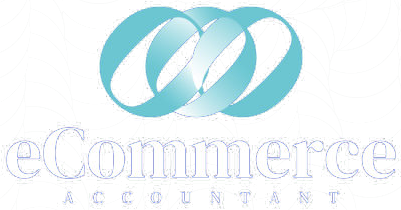
Effective cash flow management is crucial for eCommerce businesses due to its inherent unpredictability and variability. Sales cycles in eCommerce can be erratic, driven by factors such as seasonal demand, marketing campaigns, and consumer behavior. This unpredictability can lead to periods of high income followed by times of slow sales, making cash flow management vital to ensure that the business can cover expenses during less prosperous times.
Additionally, eCommerce businesses often have to invest heavily in inventory. Without prudent cash flow management, businesses risk tying up a significant amount of their capital in unsold goods, leading to potential liquidity issues. Furthermore, unexpected expenses such as returns, replacements, and customer acquisition costs can dramatically impact cash flow if not adequately managed. Hence, maintaining effective cash flow management is paramount to ensure the continuity and sustainability of an eCommerce business.
Here are the 5 Examples of Effective Cash Flow Practices
- Regular Cash Flow Forecasting: Regular forecasting allows eCommerce businesses to anticipate periods of high and low cash flow, enabling them to plan for future expenses and avoiding liquidity issues.
- Inventory Management: Effective inventory management prevents overstocking, reducing the amount of capital tied up in unsold goods. Utilizing dropshipping or just-in-time inventory methods can further optimize cash flow.
- Streamlined Receivables: Prompt invoicing and follow-ups on late payments help maintain a steady cash inflow. Offering incentives for early payments may also encourage quicker payment.
- Controlled Expenses: Regularly reviewing and controlling expenses ensures that funds are not being unnecessarily spent. This could be as simple as renegotiating contracts or identifying areas where costs can be reduced.
- Cash Reserves: Maintaining a cash reserve can provide a buffer during periods of low cash flow. This reserve can be built up during times of high cash flow to provide a safety net for unexpected expenses.
Unleash the Power: Achieve Anything with the Right Tool
By adopting the right tools, eCommerce businesses can greatly enhance their operations and improve efficiency in managing cash flow. Streamlining and automating financial processes, including invoicing, payments, and expenses, not only reduces manual work but also provides real-time visibility into the state of cash flow. With this level of transparency, business owners are empowered to stay on top of their finances, allowing them to anticipate and plan for upcoming expenses more effectively. This proactive approach ensures better financial management and paves the way for long-term success in the competitive eCommerce landscape.
Ensuring Timely Payments through Effective Customer Billing Processes
Managing cash flow effectively also requires efficient customer billing processes. Timely payments are critical to maintaining good cash flow, and with the right approach, eCommerce businesses can ensure they receive payments on time, every time.
- Automate Invoicing: Automation streamlines the invoicing process, reducing the time between an order being placed and the invoice being sent. Solutions such as Quickbooks, Xero, and FreshBooks can automate this process.
- Clear Payment Terms: Clearly communicate your payment terms at the outset of your relationship with a customer. Specify when payment is due, and consider offering early payment incentives.
- Multiple Payment Options: Offer a variety of payment methods to make it as easy as possible for your customers to pay their invoices. The more options they have, the quicker you’re likely to receive payment.
- Follow-up Reminders: Automated reminders for late payments can help ensure you receive payment. Polite, regular reminders show your customers that you are serious about receiving payment.
- Late Payment Charges: Although it’s not a popular measure, consider imposing late payment charges. This encourages customers to pay on time to avoid additional costs.
Through the proactive management of customer billing processes, eCommerce businesses can ensure timely payments, improving their cash flow management and contributing to their overall financial health.
Here are Tools that can be used for Effective Cash Flow Management in eCommerce
- QuickBooks: As a comprehensive accounting solution, QuickBooks offers tools for invoicing, bill management, expense tracking, and financial report generation, all of which contribute to effective cash flow management.
- Xero: This is another robust accounting platform that provides real-time visibility into your financial status, helping you to monitor cash flow more effectively.
- Square: Mainly known for payment processing, Square also has invoicing and financial management features that can help streamline cash flow management.
- Zoho Books: Zoho Books is an online accounting software that allows you to easily manage the money flowing in and out of your business. Manage your customers and invoices while keeping expenses in check.
- FreshBooks: FreshBooks offers easy-to-use invoicing, expense tracking, and time-tracking tools, making it a good choice for small businesses and freelancers.
- Wave: This software provides free invoice and transaction management services, and it also has other tools for payroll, payments, and accounting that can help manage cash flow.
- Mint: Mint aggregates all of your financial information into one place, making it easier to see your overall financial status and manage cash flow.
- Sage 50cloud: This is a feature-rich accounting platform that includes options for cash flow forecasting, a critical tool for managing cash flow in any business.
- PlanGuru: PlanGuru offers budgeting, forecasting, and financial analysis tools, all of which can help in managing cash flow.
- Float: It’s a cash flow forecasting tool that provides businesses with an accurate and real-time view of their future cash position. This allows you to plan better and avoid any cash crisis.
In conclusion, effective cash flow management plays a pivotal role in the sustainability and growth of an eCommerce business. The inherent unpredictability of sales cycles and substantial inventory investments necessitate the implementation of robust cash flow practices. These practices, coupled with the utilization of financial management tools, can provide real-time visibility, streamline financial processes, and ultimately enhance overall financial management. By prioritizing cash flow management, eCommerce businesses are better equipped to navigate the competitive landscape, ensuring their longevity and success.





